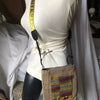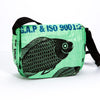7 Exceptional and Fascinating Facts about Wallets: Unveiling Hidden Truths of the Pocket Companion

As familiar as it feels in your pocket, or as common as it looks on a counter, the unassuming wallet holds fascinating stories untold. This indispensable accessory has metamorphosed through the centuries, constantly adapting to the financial needs and fashion trends of the times. Today, we unravel seven lesser-known facts about wallets that promise a surprising journey into its elaborate, intriguing history.
Beginnings in Ancient Greece
Contrary to popular assumptions, the first wallets originated not in the era of paper currency, but in Ancient Greece. Greek men would carry small leather pouches called "pursees" to harbor their coins and other belongings. Given the evident absence of paper money until the 17th century, these pouches solidly qualify as the earliest prototypes of the modern wallet. Audaciously, the unassuming wallet trumps credit cards in the timeline, emerging about three centuries before the latter in the 17th century.
The Word 'Wallet': Etymology and Shakespearean Reference
Diving into the etymology of the term 'wallet', it springs from the Old English word 'wealthe', signifying a 'roll of cloth'. Interestingly, when William Shakespeare employed the term 'wallet' in his works, he envisaged an entity resembling a backpack in today's context rather than a compact leather fold.
Japan's Traditional Wallets: A Tale of Luck and Protection
In Japanese culture, traditional wallets were crafted from a type of cloth known as "mamori-bukuro”. Incorporating expressive designs symbolizing traditional Japanese folklore, these wallets doubled as gifts conveying good luck and protection. Today, miniature variants called Omamori have evolved into amulets that are suspended in shrines in a quest for luck and divine safeguarding.
The Evolution of Carrying Wallets
The action of transporting a wallet in one's back pocket is more a sartorial necessity than a random choice. With the advent of more closely fitted trousers in the late 19th century, front pockets began shrinking, prompting wallets to migrate to the more capacious rear pockets. Although this habit is widespread today, it has engendered potential health implications, including the much-discussed 'Fat Wallet Syndrome', a kind of back pain.
Wallets as Symbols of Wealth and Status
In some cultures, such as certain Indian and Asian communities, the size of a wallet is not a matter of convenience, but a reflection of wealth and status. Larger wallets are prevalent in these societies, contrasting the trend of slim, minimalist wallets common in Western cultures. The organization and color of a wallet also have significant connotations in Feng Shui.
Wallets as Exquisite, High-Priced Fashion Accessories
With evolving times and trends, wallets are no longer just utilitarian objects; they have transformed into fashion manifestations commanding hefty price tags. The Bejeti Wallet, made from Meteorites aged around 4-5 billion years and boasting distinctive “Widmanstätten” patterns, costs an eye-watering $29,500. Cheaper versions from their collection still require an investment of $850. Now that is an extravagant price for a slice of cosmic history!
Conclusion: A Nugget of The Past In Your Pocket
The often-overlooked wallet, though humble in appearance, tells tales of historical significance and cultural diversity. From its rudimentary beginnings in Greece to its opulent evolution as a status symbol and luxury accessory, the journey of the wallet is a testament to human adaptability and ingenuity. Next time you slide your wallet into your pocket, spare a thought for the remarkable story it carries within its folds.
The History of how the wallet has come along is a testimonial that even mundane objects hold a telling past, and learning can indeed spring from the unlikeliest of sources.
-
Posted in
wallets





